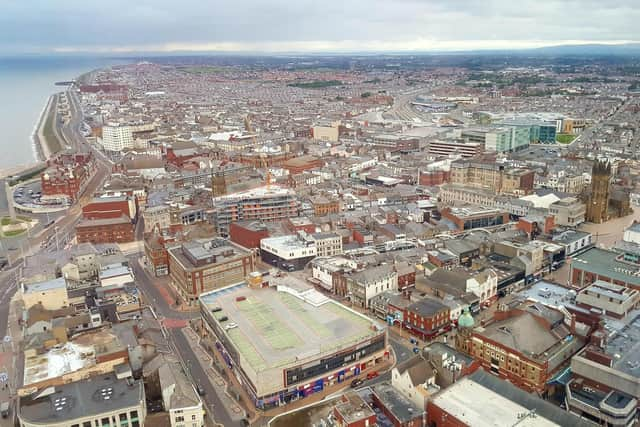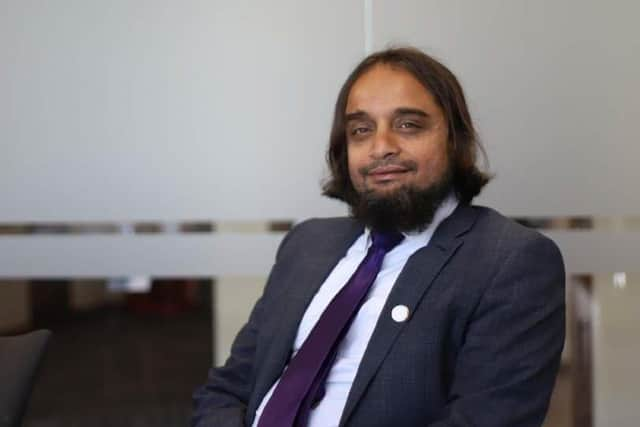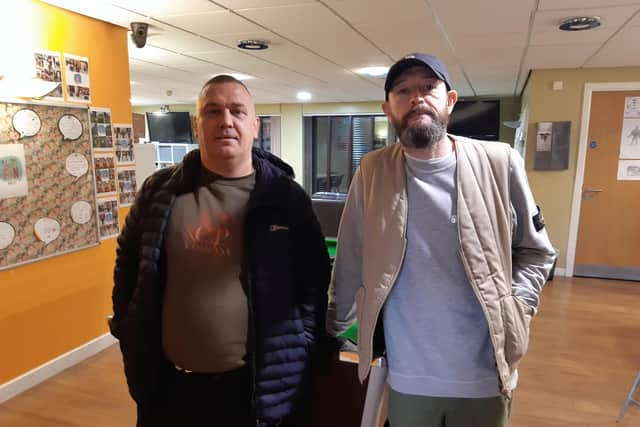Deprivation continues to claim lives in Blackpool says latest health report
and live on Freeview channel 276
But there is some optimism to be had from the range of support services which are helping many of them to turn their lives around.
The report by Blackpool's director of public health Dr Arif Rajpura builds on the annual report for 2021 by chief medical officer for England Chris Whitty, who warned of the challenges faced by coastal communities.


Advertisement
Hide AdAdvertisement
Hide AdIn the introduction to his report, Dr Rajpura says: "This year’s Public Health Annual Report explores some of the important challenges faced by coastal communities and disadvantaged areas.
"As the largest seaside resort in the UK, Blackpool is particularly vulnerable to these challenges.
"There is currently a national focus on coastal communities, as demonstrated by the chief medical officer examining the tendency for poorer health in coastal areas and the driving factors behind this in his annual report."
Dr Rajpura says problems related to substance misuse, poor mental health, domestic violence, homelessness and offending all contribute to "extremely poor health outcomes".


Advertisement
Hide AdAdvertisement
Hide AdBut he also uses his report to focus on services in Blackpool which are making a difference.
He adds: "For many people living in Blackpool these support services have made a huge difference to their lives, allowing them to deal with the problems they faced, be optimistic about the future again and contribute to helping others."
What are Blackpool's health problems?
Life expectancy in Blackpool is 74 for men and 79 for women, compared to 79 for men nationally and 83 for women.


Blackpool has the highest rate of deaths from drug misuse in the country, with a rate of 19.4 per 100,000 population compared to 5.1 deaths per 100,000 in England.
Advertisement
Hide AdAdvertisement
Hide AdThe rate of deaths from alcohol is 39.2 per 100,000, approximately two and a half times higher than the national average of 14.9 per 100,000.
Between 15 and 20 Blackpool residents take their own lives each year. The suicide rate in Blackpool is significantly higher than the rate for England as a whole at 17.4 per 100,000 compared to 10.4 per 100,000 (2018-20). Males are much more likely to take their own life than females, as is also seen nationally, although the suicide rate in females has risen in the last five years in Blackpool.
What are the reasons for this?
Deprivation - Blackpool has eight of the 10 most deprived neighbourhoods in the country.
Poor housing - Long-standing neglect by some landlords has led to Blackpool experiencing some of the worst housing conditions in the country, with at least one in three properties classified as ‘non-decent’.
Advertisement
Hide AdAdvertisement
Hide AdDisadvantage - Approximately 1,500 working age residents experience severe and multiple disadvantage.
What is being done about it?
Housing - An expanded enforcement team will take tough action against landlords not meeting existing standards and measure landlords against future national standards. Alongside this enforcement drive, Homes England will join forces with Blackpool Council, using additional funding of £650,000 to explore regeneration opportunities to improve Blackpool’s housing stock.
Support programmes - a number of programmes are in place to help people in most serious need. They include -
The Lived Experience Team (now part of Empowerment). Members have personal experience of issues such as homelessness, mental health, offending and substance use. Their skills include building trust with, and advocating for people facing multiple disadvantage. Small case loads means they can offer intense support. Those people who use the service benefit from regular reviews and robust data collection. A wide range of care is provided by different agencies from the very start of the recipient’s journey.
Advertisement
Hide AdAdvertisement
Hide AdChanging Futures is Lancashire-wide and one of 15 nationally funded partnerships aimed at improving outcomes for people experiencing multiple disadvantage.
The Domestic Abuse Complex Needs Pilot project was commissioned to address a gap in service provision within Blackpool, Fylde and Wyre for victims of domestic abuse with complex needs relating to mental health needs, drug and alcohol misuse. Prior to the pilot, it was often difficult for refuges to admit individuals with complex needs, and as many support services are based within the refuges, this meant domestic abuse victims with the most complex needs often had the least access to support. The project aims to improve this by providing a dedicated bed within Fylde Coast Women’s Aid.
A pilot project is currently underway to improve access to health care and support services for homeless people, or people at risk of homelessness
Project ADDER is a joint Home Office and Department for Health and Social Care programme with funding extended to March 2025. It aims to reduce drug-related deaths and offending, and drug use, as well as disrupting criminal activity. Blackpool was one of four areas of the country chosen to pilot the initiative.
Advertisement
Hide AdAdvertisement
Hide AdHorizon is the umbrella brand for drug and alcohol treatment services funded by Blackpool Council through the public health grant.
It is made up of the Adolescent Service for people aged 10 to 24; Renaissance which provides drug and alcohol harm reduction for people aged 18 and over such as outreach support and needle exchange; and Delphi Medical which provides clinical and behavioural support.
The Light Lounge is a service, co-funded by the NHS and Blackpool Council, provided by Richmond Fellowship for Fylde Coast residents aged over 16, struggling socially and emotionally or in a mental health crisis. Face to face or telephone support is offered up to 10pm, seven days a week.
